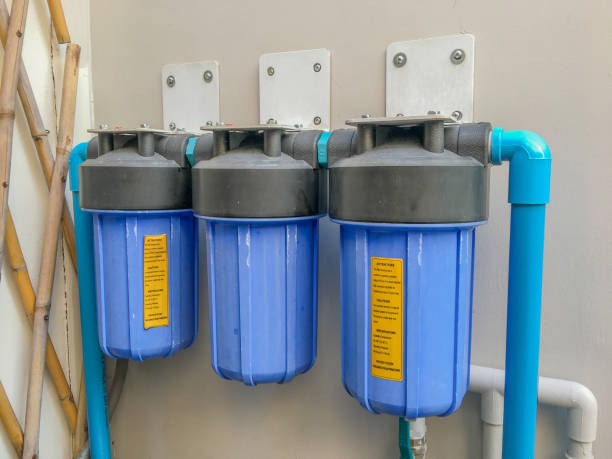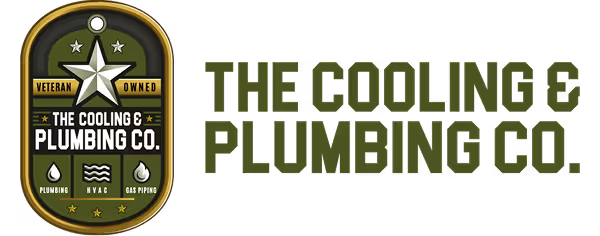Salt Free Water Softener in Ahwatukee, AZ
Hard water and mineral scale are common headaches for Ahwatukee homes. A salt free water softener (scale-control system) offers an environmentally friendly, low-maintenance alternative to traditional ion-exchange softeners by reducing scale buildup without using salt.

How salt-free water softeners work (scale-control technology)
Salt-free systems do not remove hardness minerals (calcium and magnesium). Instead they use one of several methods to prevent those minerals from forming hard, adherent scale on pipes and appliances:
- Template-Assisted Crystallization (TAC): Converts dissolved hardness minerals into microscopic, inert crystals that remain suspended and are less likely to cling to surfaces.
- Nucleation-assisted media: Surfaces in the media encourage minerals to precipitate in a non-adherent form.
- Chelation or polyphosphate dosing (less common): Temporarily sequesters minerals so they do not deposit as scale.
- Electronic or magnetic conditioners: Cause a change in mineral behavior (results vary and are dependent on water chemistry).
For most modern salt-free systems the primary benefit is scale control rather than true softening. That means less limescale in water heaters, faucets, showerheads, and on fixtures—without salt, brine discharge, or the need for regeneration cycles.
Why salt-free systems make sense in Ahwatukee, AZ
- Local water hardness: Phoenix metro supplies, including Ahwatukee, often register moderate to very hard water. Higher mineral content combined with hot water (Arizona summers and hot-water use) accelerates scale formation in water heaters, on fixtures, and inside irrigation equipment.
- Drought-conscious and septic systems: Salt-free systems avoid brine discharge and extra salt use that can be undesirable for homes on septic systems or customers mindful of environmental and landscaping impacts.
- Low-maintenance lifestyle: Many Ahwatukee homeowners prefer a “set-and-forget” solution that reduces ongoing upkeep while protecting major appliances and plumbing.
Ideal use cases and limitations
Ideal for:
- Homes looking to reduce limescale in water heaters, faucets, and appliances.
- Households on septic systems or with landscaping concerns where salt discharge is a problem.
- Buyers who want low-maintenance, environmentally friendly scale control.
Limitations to understand:
- Salt-free systems do not remove hardness minerals or lower total dissolved solids (TDS). You will still have “hard” water chemically; the minerals are altered to reduce scale.
- They are not a replacement for water softening if your priority is improved soap lather, completely spot-free glassware, or the soft feel of laundry that ion-exchange softeners deliver.
- Performance can be affected by unusually high iron, manganese, or heavy sediment—pre-filtration may be required.
Installation requirements and sizing for Ahwatukee homes
A proper installation ensures the salt-free system performs as designed:
- Location: Installed on the main cold-water line where water enters the home; some homeowners prefer an additional unit at the hot-water loop.
- Pre-filters: Recommended if water has sediment, high iron, or chlorine that could degrade media.
- Flow rate and sizing: Choose a unit rated for the household flow rate (gallons per minute) and total daily usage. Undersized units won’t control scale effectively during peak demand.
- Bypass valve and space: A bypass makes servicing easier; provide adequate clearance for media access and future maintenance.
- Water chemistry check: A simple hardness and iron test helps determine the right media and whether combination treatments are needed.
Performance expectations and troubleshooting
What to expect:
- Noticeable reduction in hard scale on heating elements, fixtures, and showerheads over weeks to months.
- Fewer clogged showerheads and longer appliance life when scale-related failures were the primary cause.
- No change in taste, color, or mineral content of water.
Common troubleshooting:
- If scale persists on very hot surfaces or older scale remains, physical cleaning may be required once; the system prevents new buildup.
- Visible cloudiness or continued staining may indicate high iron or other minerals—address with targeted filtration or treatment.
- Low flow or frequent pressure drops suggest undersizing or clogged pre-filter.
Maintenance, warranty, and service plans
Maintenance is minimal compared with salt-based systems:
- Replace pre-filters on a schedule (commonly every 3–12 months depending on sediment).
- TAC media typically lasts 5–10 years depending on model and usage; follow manufacturer guidance for media replacement.
- Annual or biennial inspections help confirm flow rates and check for any buildup or plumbing issues.
Warranty and service plan expectations:
- Many manufacturers offer multi-year warranties on the media tank and components (commonly 3–10 years). Verify what parts and labor are covered.
- Service plans often include periodic filter changes, annual inspections, and media checks/replacement scheduling. Plans vary—look for clearly stated coverage and interval options.
Salt-free vs salt-based softeners: direct comparison
- Scale control: Salt-free (good at preventing scale formation); salt-based (prevents scale by removing hardness ions).
- Water feel and soap performance: Salt-based systems produce truly soft water, improving soap suds and laundry results; salt-free will not match this.
- Maintenance: Salt-free systems require far less ongoing maintenance—no salt to buy, no brine tank to refill, no regeneration cycles.
- Environmental impact: Salt-free systems avoid brine discharge that can harm plants and septic systems.
- Upfront and operating considerations: Salt-based units may have higher operating costs due to salt usage and water for regeneration and require regular maintenance; salt-free units typically have lower ongoing costs.
Choosing the right salt-free system for your Ahwatukee home
Consider these factors:
- Household size and peak flow needs (bathrooms, irrigation, appliances).
- Measured hardness and other water chemistry (iron, manganese, chlorine).
- Whether you need true soft water for laundry or spot-free glassware (if yes, salt-based may be better).
- Space for installation and access for maintenance.
- Certifications and proven technologies (look for systems built on TAC media or validated methods).
- Warranty terms and available local service plans including filter changes and periodic inspections.
Salt-free scale control can be an excellent fit for many Ahwatukee homes that want to reduce limescale, protect appliances, and avoid salt discharge. Understanding the technology, realistic performance expectations, and the local water factors in Ahwatukee will help you select the right system and plan for reliable, low-maintenance protection against hard-water scale.






